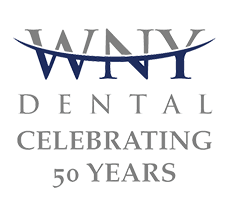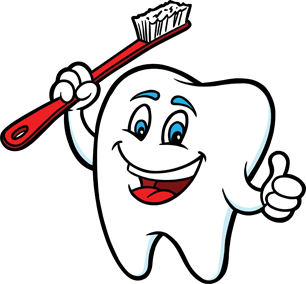Dental Services Offered in Depew, NY
We offer a range of affordable, high quality dental services—from routine teeth cleanings to complex procedures. Our trusted and knowledgeable dentists and staff are trained in the newest techniques and use the latest technologies to deliver the care you need in a comfortable environment.
Our practices offer many different types of dental services, which means you and your family can be treated without being referred to outside specialists, for the most part. And since Western New York Dental Group is a community-based dental group, we have many convenient locations and many daytime hours as well as weekend hours to accommodate you and your family.
: :Oral Conscious Sedation
Oral Conscious Sedation
Conscious Sedation is defined as a minimally reduced level of consciousness that retains the patient's ability to breath independently and respond to questions or follow instructions. Sedation Dentistry, sometimes called Relaxation Dentistry, is one way that a dentist can manage pain and anxiety during dental appointments. Unlike general anesthesia where a patient is completely unconscious, the patient can interact with the dentist, but typically has no memory of the procedure.
Are you a candidate for Oral Conscious Sedation? Ask yourself these questions:
- Do you experience extreme anxiety or fear when you're facing a dental appointment?
- Do you gag easily?
- Have you put off or canceled a dental appointment due to anxiety?
- Have you had trouble in the past getting numb prior to receiving dental care?
- Are you facing multiple dental procedures and worry that you won't be able to tolerate them?
If you answered yes to any of these questions, Oral Conscious Sedation might be right for you.
Oral sedation can be used for anything including filling a cavity, performing root canals or surgery to cosmetic dental services. You can regain your oral health or address painful conditions with greater ease.
Bone Grafting
The bone grafting procedure is an excellent way to replace lost bone tissue and encourage natural bone growth. A bone graft may be required to create a stable foundation for dental implant placement or to make the smile appear more aesthetically pleasing.
Learn more :Invisalign
Invisalign is a new way of straightening teeth without calling attention to them. The procedure involves wearing a series of nearly undetectable aligners instead of the traditional brackets and wires. They are made specifically to fit your lifestyle allowing you to eat, drink, brush, and floss easily. Our patients love their Invisalign aligners because they are clear and virtually undetectable on teeth. And since Invisalign is removable, you can easily take the clear aligners out for special events. For all these reasons, Invisalign treatment is also a great option for adult patients.
Your orthodontist will determine if Invisalign is appropriate for you during an examination, and if they are a match, he/she will prescribe a treatment plan and take an impression of your teeth. This impression is submitted to Invisalign, which uses 3-D computer technology to create a series of precisely customized aligners. Patients wear each set of aligners for about two weeks and, as a result, teeth move gradually week by week until you’ve achieved the intended results- straighter teeth.
Most Invisalign patients visit their orthodontists no more than those who wear braces. The length of treatment is approximately the same as well.
Learn more :Wisdom Teeth Extraction
Wisdom teeth, or third molars, are the last teeth to erupt within the mouth, usually in a person’s late teens or twenties. When they align properly and gum tissue is healthy, wisdom teeth do not have to be removed. Unfortunately, this does not generally happen. The extraction of wisdom teeth is necessary when they are prevented from properly erupting within the mouth. They may grow sideways, partially emerge from the gum and even remain trapped beneath the gum and bone. Impacted teeth can take many positions in the bone as they attempt to find a pathway that will allow them to successfully erupt. Your dentist can determine if you need your wisdom teeth removed from the x-rays taken during your usual hygiene cleanings.
Learn more :Extractions
The surgical removal of teeth is a common procedure in our office. You and your doctor may determine that you need a tooth extraction for any number of reasons. Some teeth are extracted because they are severely decayed; others may have advanced gum disease, or have broken in a way that cannot be repaired. Other teeth may need removal because they are poorly positioned in the mouth or in preparation for orthodontic treatment.
The removal of a single tooth can lead to problems related to your chewing ability, problems with your jaw joint, and shifting teeth, which can have a major impact on your dental health.
To avoid these complications, in most cases, your doctor will discuss alternatives to extractions as well as replacement options for the extracted tooth such as dental implants.
Learn more :
Preventive Dentistry
Regular preventive dental appointments are an important step in your oral health routine. These biannual checkups can also result in less extensive and less expensive treatment for dental conditions that may develop, and help you keep your natural teeth for a lifetime. During a regular preventive appointment at Western New York Dental Group, you will receive a thorough hygiene cleaning and a dental exam to check for cavities and other conditions. You may also receive x-rays.
Learn more :Implants
Dental implants are changing the way people live. They are designed to provide a foundation for replacement teeth that look, feel, and function like natural teeth. Someone who has lost teeth regains the ability to eat virtually anything, knowing that teeth appear natural and that facial contours will be preserved. Patients with dental implants can smile with confidence.
Learn more :Restorative Dentistry
Restorative services help restore a lost or damaged tooth due to dental disease or injury. These services include fillings, crowns and bridges, implants, gum disease treatments and root canals. At Western New York Dental Group, we will do everything we can to repair the functional structures of your mouth. Our highly-trained team of dental professionals offers a wide range of restorative dental services to help you feel more comfortable talking, eating and living your daily life.
Learn more :Orthodontics
A beautiful smile can make you feel more confident about yourself. A proper bite also contributes to improved dental health, which can affect your overall physical health and well-being. At Western New York Dental Group, our patients achieve amazing transformations, not only in their smiles, but also in their confidence and self-esteem. We offer complete orthodontic services, including braces, Invisalign and retainers.
Learn more :Dental Implants
Dental implants are changing the way people live and are often the best option for people who have experienced tooth loss. They are the closest thing to natural teeth that modern dental technology has to offer. They are a desirable alternative to dentures as these are “permanent teeth” that look, feel and function similar to natural teeth. Dental implants are tiny titanium posts that are surgically placed into the jawbone where teeth are missing. The posts act as tooth root substitutes and, within three to six months, the bone bonds with the titanium to create a strong foundation for artificial teeth. If you are considering dental implants, give us a call and we will thoroughly examine your mouth and dental records to determine if they are a good option.
Learn more :Cosmetic Dentistry
Cosmetic dentistry enhances the appearance of your teeth using a variety of techniques, including whitening, straightening, restoring or replacing your teeth. At Western New York Dental Group, we offer a variety of whitening techniques and different types of veneers, all designed to help give you confidence and make your smile beautiful.
Learn more :Oral Surgery
Oral surgeons care for patients with more serious problems, such as wisdom teeth, facial pain and misaligned jaws. They specialize in procedures involving TMJ disorders, orthognathic surgery and wisdom teeth removal.
Learn more :General Oral Surgery
Western New York Dental Group has dentists on staff who provide care related to wisdom teeth extractions and dental implants. For more complex oral surgery cases and conditions, our general dentists may refer you to our associates at Advanced Dental Specialists www.advanceddentalspecialists.com. Just like Western New York Dental Group, ADS is nationally recognized for their quality, as evidenced by their AAAHC accreditation.
Learn more :Senior Dentistry
As we age, our dental care needs change. Seniors may need more restorative care to ensure a healthy smile. At Western New York Dental Group, we offer complete senior dental care, including dentures, dental implants, gum disease prevention and a discount program for our older patients.
Learn more :Facial Trauma
The oral surgery specialist performs the proper treatment of facial injuries. These professionals must be well versed in emergency care, acute treatment and long-term reconstruction and rehabilitation – not just for physical reasons but emotional as well. Oral and maxillofacial surgeons are trained, skilled and uniquely qualified to manage and treat facial trauma. Injuries to the face, by their very nature, impart a high degree of emotional, as well as physical trauma to patients. The science and art of treating these injuries requires special training involving a “hands on” experience and an understanding of how the treatment provided will influence the patient’s long term function and appearance.
Learn more :Periodontal/Gum Disease
Periodontal disease, also called gum disease, is a bacterial infection of the gums and bones that hold the teeth in place. Gum disease can affect patients of all ages, and even the healthiest of smiles can be at risk. Gingivitis is the initial stage of this disease, and, if treated at this stage, gum disease can often be prevented and reversed. However, if left untreated, gum disease can cause tooth loss and unsightly changes to the soft tissues around the teeth. The good news is that gum disease is relatively easy to prevent by maintaining proper dental hygiene (brushing and flossing) and making regular dental visits.
Learn more :Anesthesia
Dentistry has advanced to the point in which pain is almost a thing of the past. Powerful pain-killing medications known as anesthetics not only help a patient avoid discomfort during a procedure, but post-operatively as well. Some patients, especially children, may require higher doses of anesthetic than others.
Learn more :Endodontic/Root Canal Therapy
Root canals are typically needed when an untreated cavity progresses rapidly and spreads to the pulp of the tooth. The tooth pulp is made up of blood vessels, connective tissues and nerves. Once the bacteria of decay have reached the tooth pulp, it can be extremely painful. If your dentist determines that a root canal is the best solution for you, the procedure can typically be done with minimal discomfort and often keeps you from losing the tooth.
Learn more :Prosthodontics
Prosthodontics deals with simple to complicated full-mouth restorations that may involve crowns, veneers, fixed bridges, dentures, dental implants, or mixed implant and natural tooth restorations. Your general dentist may refer you to a prosthodontist for more complex restoration or replacement cases.
Learn more :Sedation Dentistry
Powerful pain-killing medications known as anesthetics not only help a patient avoid discomfort during a procedure, but post-operatively as well. Your dentist will talk to you about the most appropriate sedation option to address your particular needs.
Learn more :After Hours Emergency
Dental emergencies can happen at all hours of the day and night. In order to keep every tooth we care for safe, we offer some guidelines on what to do in every situation. And if that isn’t enough, we always have a dentist on call seven days a week to handle any after-hour emergencies for our current patients.
Learn more



























